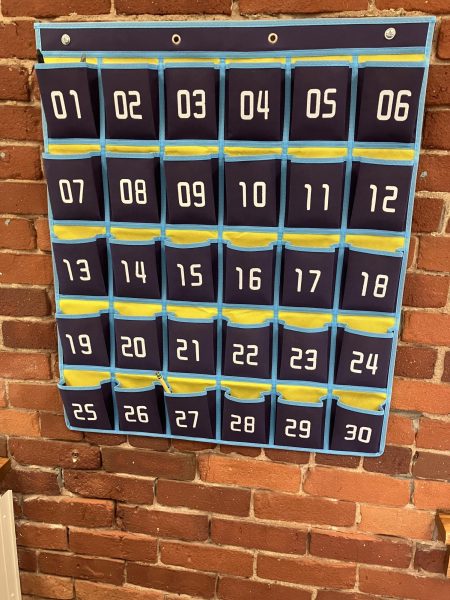10 Top Last Words
Legacy is something that remains in the forefront of people’s minds throughout their lives. No one wants to be forgotten after they die. An excellent way to ensure they will be remembered forever, is to speak noteworthy last words. Whether they are profound or humorous, a person’s last words can speak volumes about his or her character and life. And, they are really fun to read. Here are the top ten most memorable famous last words.
- William Erskine (After he jumped from a window): “Now why did I do that?”

William Erskine was an general in the British Army. He was widely known in the military as a “madman”, and though some thought he was clever, it was believed his influence was inherited- not earned. Erskine was eventually declared insane and was dismissed from the army through a process called “cashiering”, meant to publicly humiliate and degrade military officers. One year later, Erskine took his own life by jumping out a window. He didn’t die on impact and reportedly remarked: “Now why did I do that?”
- Dominique Bouhours (a French grammarian): “I am about to – or I am going to – die; either expression is correct.”

Dominique Bouhours was a French priest who lived during the seventeenth century. He devoted his life to scholarly pursuits; reading, translating, and critiquing the great literary works of his time. Bouhours was an expert on the French language. He wrote numerous books on French grammar and vocabulary. His last words, whether purposely funny or not, certainly show his lifelong devotion to language.
- Isadora Duncan : “Farewell my friends; I go to glory!”

Isadora Duncan, a revolutionary American dancer during the early twentieth century, had unintentionally beautiful last words. Duncan loved to wear long, flowing scarves and shawls. However, she had no idea this would lead to her death when she climbed into a car while on a trip to France. Her long scarf tangled into the wheel of the car and she didn’t notice. When the car started to move Duncan’s neck broke and she died instantly. Though she did not intend for her last words to sound like a goodbye forever, they fit nicely and are remembered by many.
- Napoleon Bonaparte: “France, army, Josephine…”

My personal favorite last words belong to the ruthless French emperor, Napoleon Bonaparte. Napoleon came to power after the French Revolution through a military coup. He was a brilliant military commander and succeeded in conquering most of Europe. After a costly loss against Russia, Napoleon’s power declined and he was exiled on two occasions. Napoleon’s first wife was named Josephine. He loved her very much and wrote passionate love letters to her often. However, Josephine could not bear Napoleon any children. Even though Napoleon still loved Josephine, he divorced her and remarried so that he could have an heir. A man who was at one point the most powerful man in the world placed his wife above all else and was devoted to her until the end, shown by his simple last words.
- John Adams: “Thomas Jefferson still survives.”

John Adams was a founding father and the second president of the United States. Adams assisted Thomas Jefferson in drafting the Declaration of Independence. Once the constitution and the two main political parties were formed, Adams and Jefferson became strong political enemies. Later in life, the two resumed their friendship. On July 4, 1826, the fiftieth anniversary of the signing of the Declaration of Independence, Adams died. Unaware that just a few hours ago, Thomas Jefferson had also passed away, Adams’ last words were dedicated to his fellow founding father: “Thomas Jefferson still survives.”
- Franz Ferdinand: “It is nothing…it is nothing…”

Archduke Franz Ferdinand, heir to the Austro-Hungarian throne at the time of his death, was assassinated by a group called The Black Hand. The Black Hand was a Bosnian-Serbian radical political group who believed they would be able to create a Slavic state (Yugoslavia) if Ferdinand was unable to inherit the throne. While visiting Sarajevo, Ferdinand and his wife, Sophie, were shot by Gavrilo Princip, a member of a group of six Black Hand assassins. Before he died, Ferdinand was asked how badly he was wounded and responded: “It is nothing.” In reality, it was definitely something. Franz Ferdinand’s death caused Austria-Hungary to declare war against Serbia, triggering World War I.
- John F. Kennedy: “No, you certainly can’t.”

John F. Kennedy, or JFK, was the thirty-fifth president of the United States. While on a trip to Texas, it is widely believed that he was assassinated by Lee Harvey Oswald. Before Oswald could be indicted, however, he too was assassinated. Kennedy was well-loved by the American people and his death was a tragedy for many. Kennedy left behind his two young children and his wife, Jackie. During a parade thrown in the President’s honor, the governor of Texas’ wife, Nellie Connelly, reportedly remarked: “Well Mr. President, you certainly can’t say that the people of Dallas haven’t given you a nice welcome,” to which he responded: “No, you certainly can’t,” just moments before the shooting.
- Thomas Edison: “It’s very beautiful over there.”

Thomas Edison, a well-known inventor and businessman, is most famous for his invention of the light bulb. Edison only had formal schooling for three months before he was kicked out for his inability to pay attention. His mother taught him at home, but he never attended high school or college. Edison died of complications with his diabetes when he was eighty-four. Many look at death as the end or a gloomy affair, but Edison’s last words: “It is very beautiful over there,” gleam with hope. There is some speculation about whether Edison was speaking about the afterlife or the garden outside, but either way, he left the world with a tone of joyfulness.
2. James French: (Before his execution by electric chair): “How about this for a headline for tomorrow’s paper? ‘French Fried.’”

James French was a convicted murderer. He was in prison for life, but wanted to die. In order to make the state of Oklahoma execute him, he murdered his cell-mate. The state complied and French became the last person to be given the death penalty in Oklahoma. Those who die from execution are given quite the advantage in planning their last words since they don’t have much else to do while awaiting death. He is known almost exclusively for his humorous last words which were said to journalists watching his execution.
1. Francois Rabelais: “I go to seek a great perhaps.”

Yes, I did steal this from John Green’s novel Looking For Alaska, but it is simply too good not to include. Francois Rabelais was a well-known French Renaissance humanist. He was a writer, doctor, monk, and scholar. Rabelais was brilliant and extremely quotable. His last words are so inspiring and meaningful, I could not imagine a greater legacy to leave at death. With this simple sentence: “I go to seek a great perhaps,” Rabelais sums up all the uncertainty and risk that comes with death and the afterlife which every human is bound to feel.








Dixon Pinfold • Jun 10, 2021 at 10:41 PM
Some of your choices weren’t bad. (And I commend your choice and deployment of words.)
But my own choice is the (perhaps apocryphal) last words of Oscar Wilde, at his death no longer a social darling, no longer a Londoner, fat, sick and no longer beautiful, no longer prosperous, rusticated to Paris after scandal, humiliation, and imprisonment:
“Either the wallpaper goes or I go.”